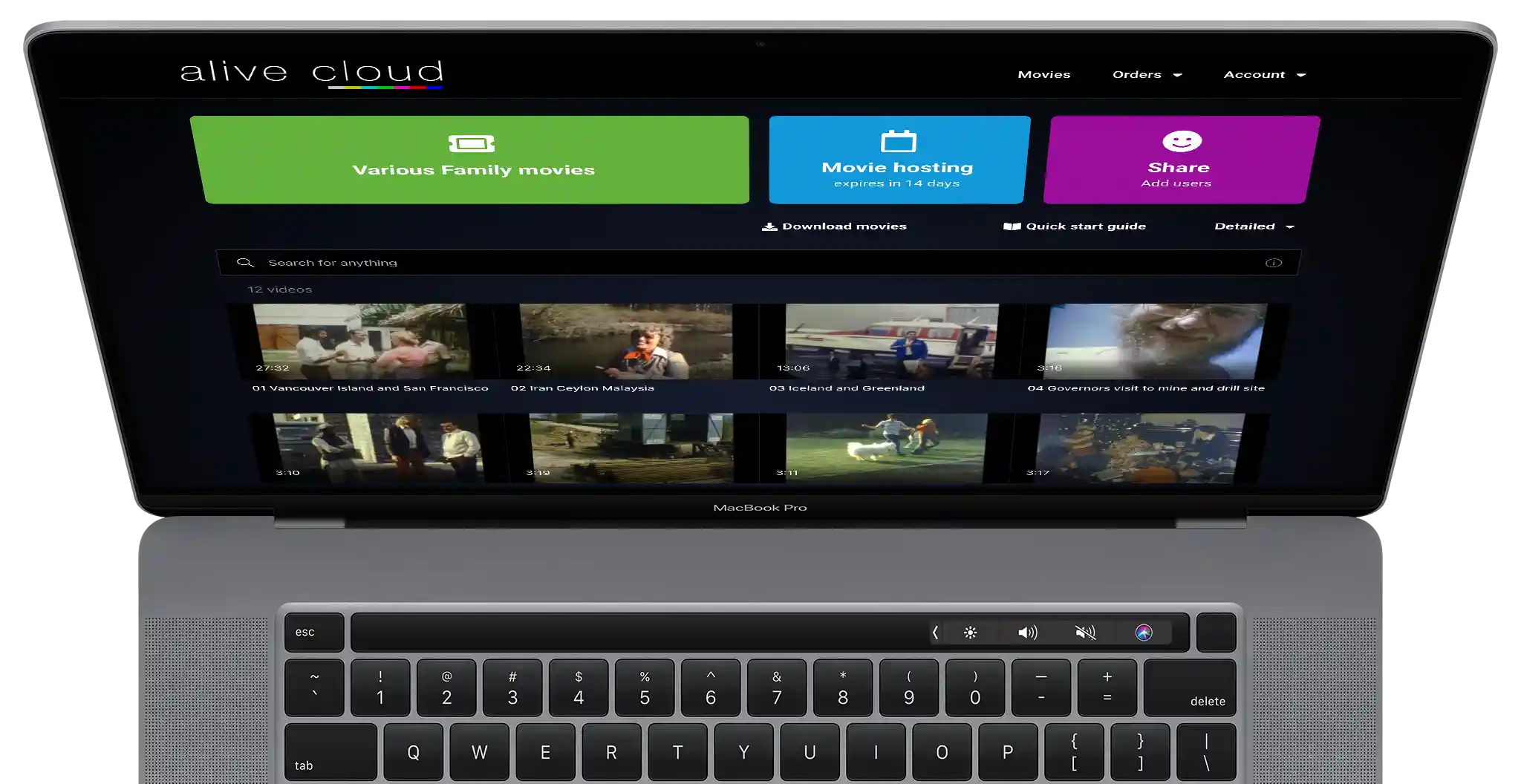Nitrate Film
General Information
Cellulose Nitrate was first used as a base for photographic roll film by George Eastman in 1889 and was used for photographic and professional 35mm motion picture film until the 1950s. It is highly inflammable and also decomposes to a dangerous condition with age. When new, nitrate film could be ignited with the heat of a cigarette; partially decomposed, it can ignite spontaneously at temperatures as low as 120 F (49C). Nitrate film burns rapidly, fuelled by its own oxygen, and releases toxic fumes.
Decomposition
There are five stages in the decomposition of nitrate film:
(i) Amber discolouration with fading of picture.
(ii) The emulsion becomes adhesive and films stick together; film becomes brittle.
(iii) The film contains gas bubbles and gives off a noxious odour
(iv) The film is soft, welded to adjacent film and frequently covered with a viscous froth
(v) The film mass degenerates into a brownish acrid powder.
Film in the first and second stages can be copied, as may parts of films at the third stage of decomposition. Film at the fourth or fifth stages is useless and should be immediately destroyed by your local fire brigade because of the dangers of spontaneous combustion and chemical attack on other films. Contact your local environmental health officer about this.
It has been estimated that the majority of nitrate film will have decomposed to an uncopiable state by the year 2000, though archives are now deep-freezing film to buy themselves more time.
Identifying Nitrate Movie Film
Nitrate movie film was made mostly in the professional 35mm gauge, though in the 1890s and the early years of this century some amateur film stocks, such as 17.5mm, were cut down from 35mm film.
8mm, Super 8, 9.5mm and 16mm movie film was always manufactured with a safety (non-flammable) base, as were the earlier Edison 22mm and Pathé 28mm films. 35mm safety movie film was made from 1908 onwards but was not widely used by the cinema industry until the mid-1950s.
Nitrate film is often difficult to identify. 35mm movie film is usually found in metal cans, about 1-1½in (2.5-4cm) deep and varying in diameter from two to fourteen inches (5-35cm). The film may be wound on a wooden or plastic bobbin but often there is no bobbin at all. Unroll a few strands of the film to look at the pictures. If the frames stretch from one side of the sprocket holes to the other, it is silent film and almost certainly nitrate. If the picture is yellowish and slightly faded and the film gives off a pungent smell it is nitrate in the first stage of decomposition.
The manufacturer’s name is sometimes printed along the film edge together with other identifying marks. A star identifies the film as nitrate. Sound nitrate film (this has smaller-sized frames and a strip of sound track running the length of the film between the frames and one set of sprocket holes) often has ‘nitrate film’ printed along the edge and/or horizontal dashes between every fourth sprocket hole. Safety film has vertical dashes every fourth sprocket hole or the letter S followed by a number. Nitrate negative may be printed on safety film so the film edge may show both ‘nitrate’ and ‘safety’ markings. If in doubt, test.
Testing
One way of testing if a film is on nitrate base is to apply a small drop of film cement (Amyl Acetate or Ethyl Acetate) to the base side. If it is nitrate, the base will immediately become quite ‘tacky’; safety film will not, though there might be a white deposit left. The laboratory method is to put the piece of film into a tube of trichloroethylene. Nitrate film sinks, safety floats.
Storage
Damp, heat and fluctuating conditions accelerate the inevitable deterioration of nitrate film. It should be kept cool, at a constant 50F (10C) with a relative humidity of 40-50% Temperatures over 80F (27C) and relative humidities exceeding 60% should be avoided. The film gives off fumes which accelerate the decomposition process and also affects safety film so nitrate should be stored separately, preferably in its own metal cupboard or another building.
It is essential to have adequate ventilation to allow the gases to escape and avoid the risk of explosion. Having nitrate film on your premises may invalidate insurance and be against local fire regulations – consult your local environmental health officer.
Showing and Copying
Only a few institutions are licensed to project nitrate film. YOU SHOULD NOT ATTEMPT TO PROJECT SUCH FILMS YOURSELF. The best way to view and preserve the images on the film is to copy it onto safety film..
Information kindly supplied by National Museum of Photography Film & Television.

